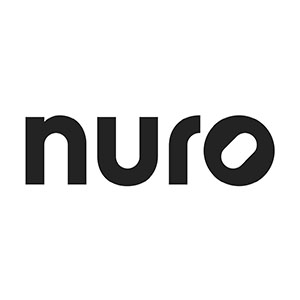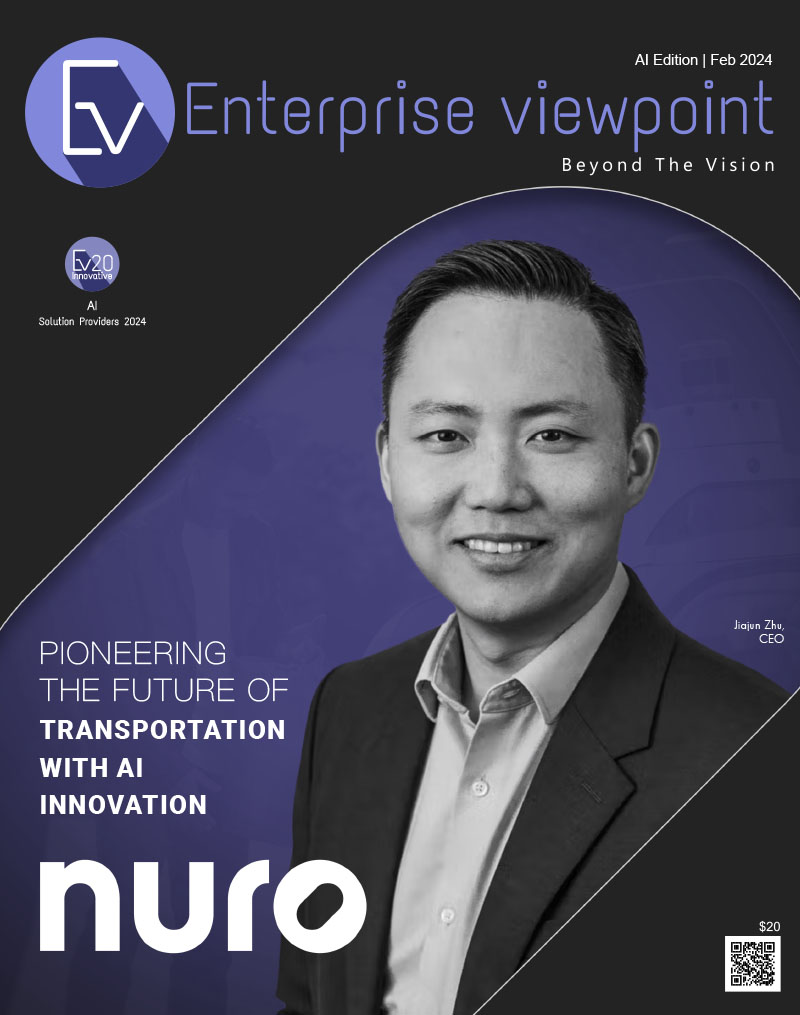The challenges in modern transportation are multifaceted, ranging from congestion and pollution to the inefficiencies in last-mile delivery. As urbanization continues to surge, cities grapple with traffic congestion, leading to increased commute times and environmental concerns. Additionally, the traditional model of goods delivery faces obstacles in the final leg of the journey – the last mile. Here, the inefficiency of conventional delivery methods becomes apparent, with delays, high costs, and environmental impact. At this point, Nuro has emerged as a beacon of innovation, transforming the landscape of last-mile delivery and redefining how we envision the future of transportation. At the heart of Nuro’s success lies a commitment to pushing the boundaries of artificial intelligence (AI) and leveraging its transformative potential to address critical challenges in the field.
The Genesis of Nuro: A Vision Powered by AI
Founded in 2016 by Jiajun Zhu and Dave Ferguson, two visionaries with extensive backgrounds in robotics and autonomous systems, Nuro was conceived with a singular vision — to harness the power of artificial intelligence to revolutionize transportation. The founders recognized that AI could be the driving force behind creating autonomous vehicles capable of navigating complex urban environments and addressing the challenges inherent in last-mile delivery.
From its inception, Nuro set out to create a new paradigm for transportation, where AI would be the guiding force behind vehicles that could seamlessly navigate streets, interact with the environment, and deliver goods with unparalleled precision. The early challenges were significant — developing AI systems capable of understanding dynamic urban scenarios, ensuring safety, and obtaining regulatory approvals. Nuro’s commitment to overcoming these hurdles laid the foundation for the AI-driven revolution that was to follow.
The Technological Marvel: Nuro’s AI Innovations
At the core of Nuro’s autonomous vehicles is a sophisticated AI-driven perception system that enables vehicles to “see” and understand their surroundings. Equipped with an array of sensors, including cameras, lidar, and radar, Nuro’s vehicles employ AI algorithms to process vast amounts of data in real-time. This level of perception is crucial for navigating complex urban environments, predicting pedestrian behavior, and responding to dynamic traffic conditions. Nuro’s AI systems are not just passive observers; they are decision-makers. Machine learning algorithms process data from the vehicle’s sensors, learning and adapting to various scenarios over time. This continuous learning allows Nuro’s vehicles to become more adept at making real-time decisions, ensuring safe and efficient navigation through the myriad challenges presented by city streets.
Nuro’s AI extends beyond the vehicle itself to include predictive analytics for urban mobility. The company analyzes vast amounts of data related to traffic patterns, delivery routes, and urban infrastructure. This data-driven approach enables Nuro to optimize its fleet operations, predicting optimal delivery times, dynamically adjusting routes based on traffic conditions, and enhancing overall efficiency. Safety is paramount in the development of AI-driven autonomous vehicles. Nuro has implemented robust safety protocols, integrating AI systems that can anticipate and respond to potential risks. Through simulations and real-world testing, Nuro’s AI continuously refines its ability to handle unexpected scenarios, further enhancing the safety of its autonomous fleet.
Nuro’s AI innovations extend to addressing regulatory challenges. The company actively collaborates with regulatory bodies to ensure that its AI systems comply with safety standards and regulations for autonomous vehicles. Nuro’s commitment to responsible AI deployment involves ongoing communication with policymakers to shape the regulatory framework for the future of autonomous transportation.
Nuro’s first major milestone in AI-driven innovation was the introduction of its autonomous delivery vehicle, the Nuro R1, in 2018. The vehicle showcased the early capabilities of Nuro’s AI systems, navigating neighborhoods with precision and efficiency. The success of R1 laid the groundwork for the evolution to Nuro R2, an upgraded version featuring enhanced AI capabilities.
Nuro R2 represents a leap forward in AI-driven autonomy. The vehicle’s perception system has been refined, enabling it to handle a broader range of scenarios, from busy intersections to complex parking situations. The machine learning algorithms have been fine-tuned to improve decision-making in real-world conditions, making Nuro R2 a testament to the iterative advancements in AI technology within the company.
Recognizing the collaborative nature of AI innovation, Nuro strategically forged partnerships with key industry players. Collaborating with companies like Kroger, Nuro extended the application of its AI technology to grocery delivery, showcasing the adaptability and versatility of its autonomous solutions. Nuro’s partnerships also extend to academic and research institutions, fostering a collaborative ecosystem for AI research and development. By engaging with experts in the field, Nuro ensures that its AI innovations remain at the forefront of technological advancements, continually pushing the boundaries of what is possible in autonomous transportation.
AI Beyond Delivery: Nuro’s Vision for Urban Mobility
Nuro’s commitment to AI extends beyond goods delivery to encompass broader applications in urban mobility. The company envisions a future where AI-driven autonomous vehicles play a central role in redefining how people and goods move within cities. Nuro’s AI is not just about delivering packages; it’s about optimizing the entire urban transportation ecosystem.
The potential applications of Nuro’s AI-driven technology are vast — from ride-sharing services to on-demand transportation for individuals with mobility challenges. Nuro’s vision extends to creating a holistic ecosystem where AI enhances accessibility, reduces congestion, and contributes to the creation of smarter, more sustainable cities.
While Nuro’s AI innovations have propelled the company to the forefront of autonomous transportation, challenges persist. The dynamic nature of urban environments, regulatory complexities, and public acceptance are ongoing considerations for Nuro and the entire autonomous vehicle industry.
Looking ahead, Nuro remains dedicated to addressing these challenges through a combination of technological innovation, collaboration, and a commitment to responsible AI deployment. The company’s roadmap includes further advancements in AI capabilities, expanded partnerships, and active engagement with communities to shape the future of transportation.
Today, Nuro’s journey is a testament to the transformative power of AI in reshaping transportation. From its early vision to the deployment of AI-driven autonomous vehicles on the streets, Nuro has consistently pushed the boundaries of what is achievable. The company’s commitment to leveraging AI for the greater good — improving urban mobility, enhancing efficiency, and reducing environmental impact — positions Nuro as a leader in the ongoing revolution in transportation. As Nuro continues to innovate, collaborate, and navigate the complex terrain of autonomous transportation, it remains a driving force in the evolution of mobility. The story of Nuro is not just about autonomous vehicles; it’s about the convergence of AI and transportation, paving the way for a future where the movement of goods and people is not just intelligent but seamlessly integrated into the fabric of our daily lives.











